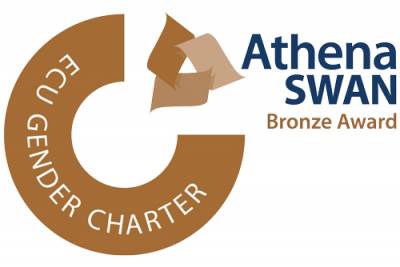Linguistic Approaches to its Theory and Practice in the Classical World. INTERNATIONAL CONFERENCE
10-12 September 2014
University College London
Persuasion is a psychological phenomenon which is deeply connected to language. The focus of the conference is to explore the nature and role of persuasion as linguistic exercise in classical literature and culture from a variety of different perspectives. These include modern linguistics, stylistics, ancient rhetoric and criticism, and comparative approaches taking into account modern and extra-European rhetorical practices and traditions. We hope to discuss the following themes:
- Persuasion through language: insights into the linguistic strategies put into effect as means of persuasion in classical literature (fiction and non-fiction, including technical and didactic literature)
- Language through rhetoric: rhetorical literature as a collection of mother-tongue metalinguistic material, which may help us reconstruct language use in precise and well-defined communicative tasks
- Rhetoric and practice: critical approaches to the ancient rhetorical theories and observations on the psychological effects of language, based on linguistic analysis of texts which aim to persuade
- Literary representations of persuasion: linguistic analysis of persuasion 'in action' as depicted in both classical literary prose and poetry (e.g. historiography, drama, etc.);
- Persuasion across languages: insights on how rhetorical concepts involving linguistic features have been adapted across linguistic borders (from Greek into Latin down to the modern European languages)
Place: Department of Greek and Latin (Gordon House WC1H 0PP) and the UCL Institute of Archaeology (Gordon Square).
Registration
Conference fee: there are a number of options on the Registration page
- Full conference: full rate and student (concessionary) rate includes lunches and refreshments and reception on 10 September
- One-day fee: full rate and student (concessionary) rate includes lunches and refreshments and reception on 10 September
- Conference dinner 11 September: if interested in attending dinner, please choose a package option from the Registration website below which includes the dinner fee
The lecture by Professor Sluiter on 10 September is open to all: if you are not attending the conference, please register for this lecture at Eventbrite here
A limited number of conference bursaries for students is available (this applies to fees only). To apply for a bursary, please send a letter stating your name, institution, thesis title, and how the conference relates to your degree course or research to languageofpersuasion14@gmail.com no later than the 31st July 2014.
Programme
- Wednesday 10/09/14
11:00 Institute of Archaeology Registration / Tea & coffee
13:30 Archaeology Lecture Theatre
Welcome: Gesine Manuwald (UCL)
14:00 Panel 1
Saskia Willigers (University of Amsterdam)
Reported Narrators in Greek Lyric and Tragic Poetry
Andreas Serafim (UCL/Cyprus/Open Univ. Cyprus)
τὸν ἀκροατὴν διαθεῖναί πως: the use of the imperative and questions in Attic oratory
L.W. van Gils (Vrije Universiteit Amsterdam)
Invective Passages in Cicero and Politeness Theory
15:30 Tea
16:00 Panel 2
Thierry Hirsch (Oxford University)
'And I have to say this briefly.' The Language of Persuasion in Cicero's De Inuentione.
William Short (University of Texas, San Antonio)
Can figures of speech persuade? An argument from zeugma.
17:00 End of panel
JZ Young lecture theatre in the Anatomy building:
18:30 Keynote lecture: Ineke Sluiter (Leiden University)
Justice, expedience, and the rhetoric of conflict resolution
20:00 Reception (Flaxman Gallery and Portico)
- Thursday 11/09/14
10:00 Tea/coffee
10:30 Panel 3
Elizabeth Conner (University of Maryland)
Procopius and Aeneas of Gaza: Recipient Design and Erotic Speech
Antony Smith (Oxford University)
The persuasive strategies of Seneca, De ira
Hany Rashwan (SOAS)
A Critical Response to the misinterpretation of Ancient Egyptian Persuasive Language and its Literary Devices
Michela Piccin (Sapienza University of Rome)
Strategies of Persuasion in Neo-Assyrian Treaties
12:30 Lunch (Gordon House)
13:30 Panel 4
Tzu-I Liao (UCL)
Reporting one's own speech: in Demosthenic symbouleutic corpus
Anna Bonifazi (Heidelberg University)
Persuading with particles: Herodotus, Thucydides, and the doing of saying
Tobias Reinhardt (Oxford University)
Emphasis - a Figure of Style and its Uses
15:00 Tea
15:30 Panel 5
Brenda Griffith-Williams (UCL)
'If you are persuaded by my opponent, you will have been deceived': the language of 'persuading' and 'deceiving' in the speeches of Isaios.
Antonio de Cabo (Universidad Complutense de Madrid)
Persuasion in the Corpus Hippocraticum: a syntactic and semantic approach to πείθω and πιστεύω.
Casper de Jonge (Leiden University)
'He spoke many falsehoods and made them sound true.' Dionysius on persuasive narration in Homer, Herodotus and Lysias
17:00 End of panel
19:00 Dinner
- Friday 12/09/14
10:00 Tea/coffee
10:30 Panel 6
Annemieke Drummen (Heidelberg University)
οὐκ ἔστιν οὐδὲν κτῆμα τιμιώτερον: the linguistic shape of persuasive tragic speeches
Alessandro Vatri (Oxford University)
The Music of Persuasion: ancient rhetoric and the 'harmony' of Greek speech
Rutger Allan (Vrije Universiteit Amsterdam)
Persuasion by Immersion. Linguistic and narratological aspects of immersive texts.
12:30 Lunch (Gordon House)
13:30 Panel 7
Jonathan Powell (RHUL)
Linguistics, Stylistics, or Rhetoric? Rhetorical figures involving word order variations in Latin
Donna Shalev (Hebrew University of Jerusalem)
How to do (persuasive) things with (ipsissima) verba: Aristotle Rhetoric iii.18 and the medieval Arabic Nachleben
Stephen Colvin (UCL)
Is Rhetoric prose? Some linguistic considerations.
15:00 Closing remarks: Chris Carey (UCL)
 Close
Close



